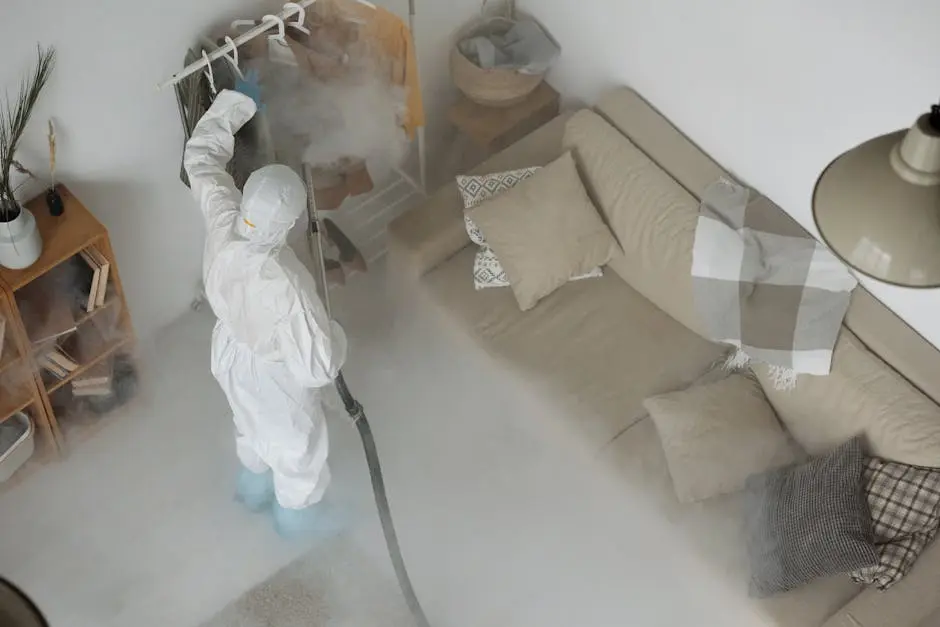Dealing with silverfish in your home can be quite the hassle, especially when you’re concerned about the safety of your family and pets. In this blog, we’ll explore safe treatment options to help you manage these pesky insects without compromising the well-being of your loved ones.
Understanding Silverfish Behavior and Habitats
Silverfish love dark, damp environments like basements, bathrooms, and kitchens. Understanding their preferred habitats can help in efficiently targeting their population.
These tiny, wingless insects are nocturnal and thrive in environments where the humidity is above 75%. They often hide in cracks, crevices, or any nooks that provide the dampness they crave. Their diet mostly consists of starches and sugars, which explains why they are commonly found in kitchens feeding on cereal, flour, or even the glue in book bindings.
Given their preference for humidity, it’s important to manage moisture levels in your home. Using a dehumidifier in basements and keeping bathrooms well-ventilated can significantly reduce the appeal of these areas to silverfish, making it harder for them to survive and reproduce.
Natural Repellents and Their Uses
Natural repellents such as diatomaceous earth and essential oils, like lavender and cedar, can deter silverfish without toxic chemicals.
Diatomaceous earth works by dehydrating silverfish, while essential oils disrupt their sensory receptors, making areas less appealing. You can sprinkle diatomaceous earth along baseboards and mix essential oils with water to spray in infested areas, both effective and chemical-free methods.
For a family- and pet-friendly approach, essential oils not only repel silverfish but can also provide a pleasant aroma to the home. Mixing a few drops of oil with water in a spray bottle offers an easy application method that is both effective and safe.
Home Remedies for Silverfish Control
Simple and effective home remedies, like using traps with bread or sugar, can help reduce the silverfish population without risking harm to pets or children.
A popular remedy is the DIY trap using a glass jar. Place pieces of bread or sugar inside, and wrap the exterior with masking tape to allow silverfish to climb in. This trap takes advantage of their attraction to sweet and starchy foods, providing a non-toxic solution to capturing these pests.
Another home remedy involves creating a paste of flour and water to act as a bait. Smearing it along paper layers, it becomes an irresistible treat for silverfish while remaining harmless to pets and children.
Preventing Silverfish Infestations
Maintaining a dry and clean environment is essential in preventing silverfish. Regular vacuuming and dehumidifiers can help keep them at bay.
Securing food items and sealing any cracks or crevices where silverfish might enter are also crucial preventive measures. Food should be stored in airtight containers, and any small openings around doors and windows should be sealed with caulk to prevent these tiny pests from entering.
It’s a good practice to check and discard old papers, magazines, and boxes, as these provide both food and shelter. Regularly inspecting and tidying storage spaces further decreases the likelihood of creating an inviting habitat for silverfish.
When to Call a Professional
If a silverfish infestation becomes too overwhelming, it might be time to call a professional pest control service that offers family- and pet-friendly options.
Professional services can tailor solutions to safeguard your home while minimizing chemical exposure. They bring expertise in identifying hidden infestations and applying advanced treatments that are both targeted and safe for your loved ones.
At times, despite the best efforts, silverfish might persist. For such situations, seeking professional aid ensures a comprehensive solution, utilizing techniques and products not readily available to homeowners.
Keeping Silverfish at Bay Safely
By following integrated pest management strategies and choosing safe, natural treatments, you can effectively manage silverfish infestations while keeping your family and pets safe. Remember that prevention and regular monitoring are key to maintaining a silverfish-free home.

